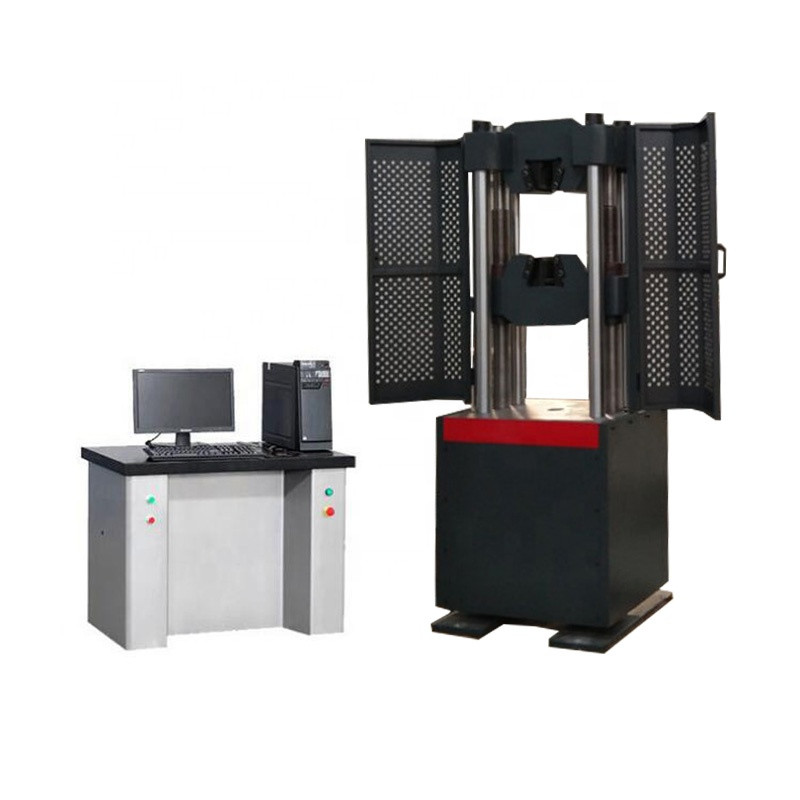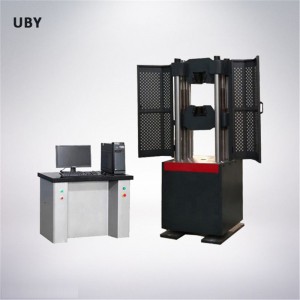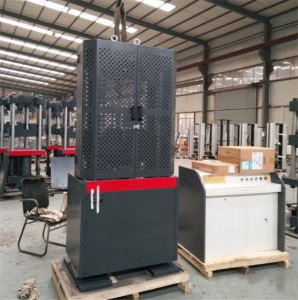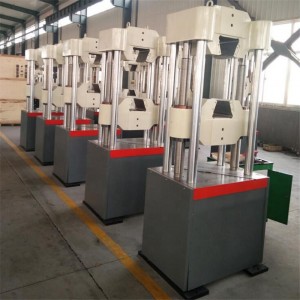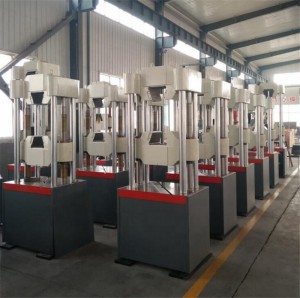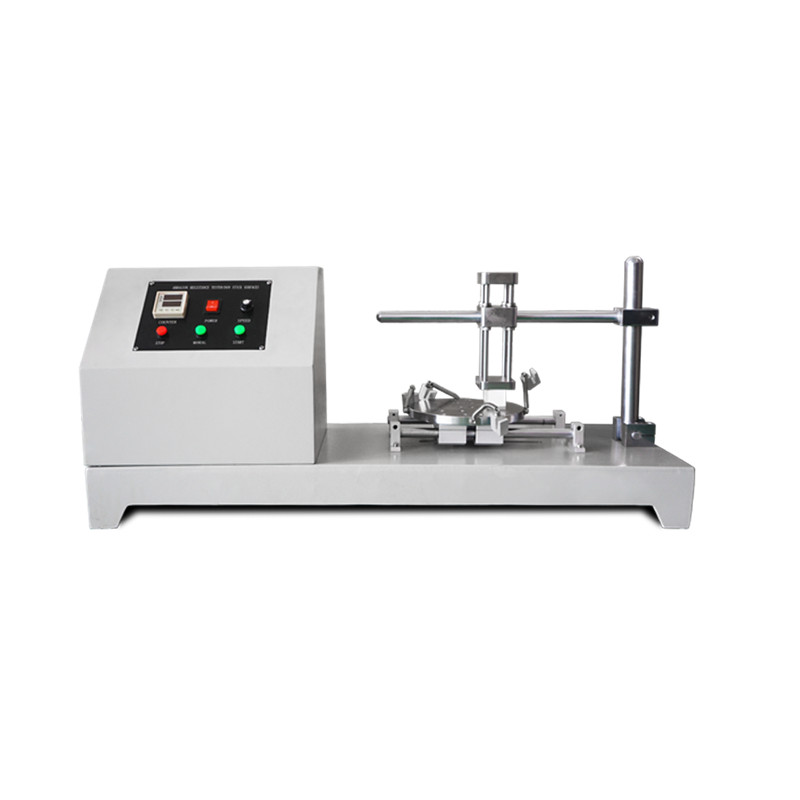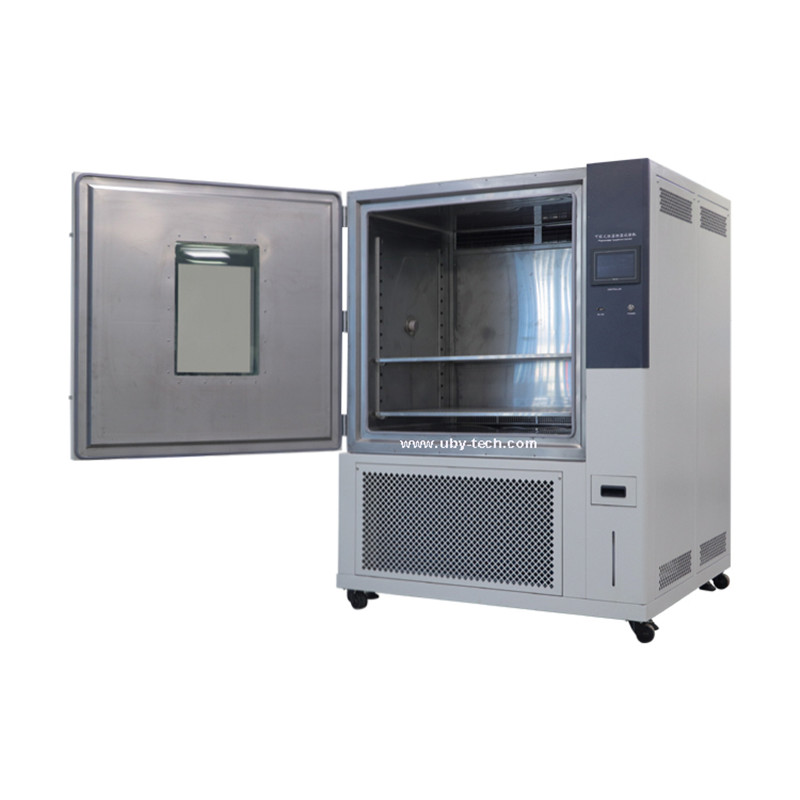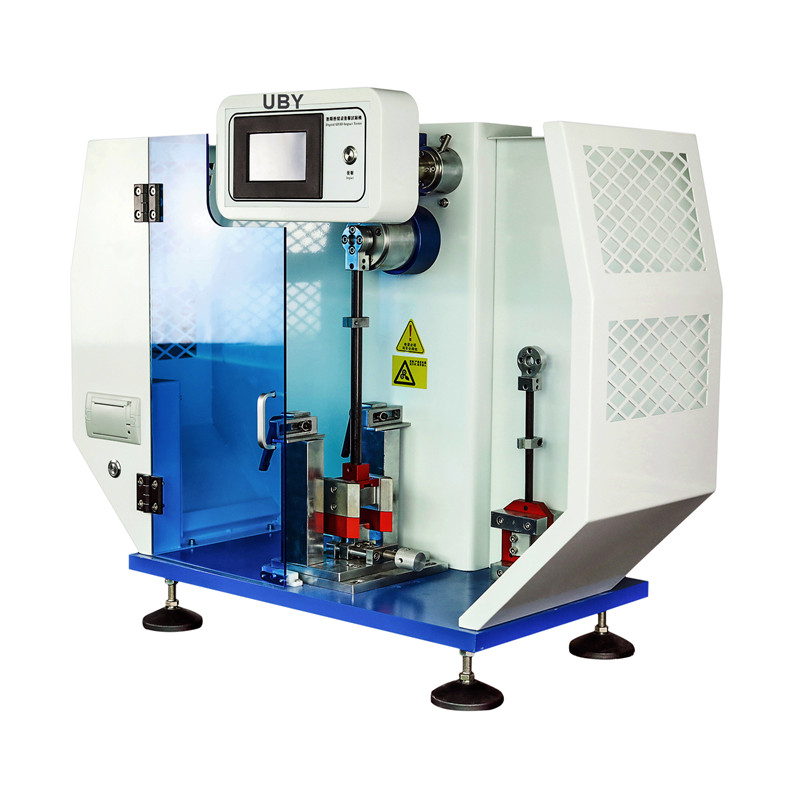Products
UP-2010 60kN,1000kN Hydraulic Servo Steel Strand Tensile Testing Machine
Main performance technical specifications
| Max load | 300KN |
| Test force measurement range | 1%—100%FS |
| Test machine level | 1 grade |
| Number of columns | 2 column |
| Test force resolution | One-way full-scale 1/300000 (full resolution has only one resolution, no split, no range switching conflict) |
| Test force relative error | ±1% |
| Displacement measurement resolution | Meet the requirements of GB/T228.1-2010 standard |
| Displacement indication relative error | ±1% |
| Deformation indication relative error | ±1% |
| Loading rate range | 0.02%—2%FS/s |
| Max distance between tensioning chucks | ≥600mm |
| Max compression space | 550mm |
| Max stroke of the piston | ≥250mm |
| Max speed of piston movement | 100mm/min |
| Flat specimen clamping thickness | 0-15mm |
| Round specimen clamping diameter | Φ13-Φ40mm |
| Column spacing | 500mm |
| Max distance of the curved support | 400mm |
| Piston displacement indication accuracy | ±0.5%FS |
| Oil pump motor power | 2.2KW |
| Beam moving motor power | 1.1KW |
| Host size | About 900mm×550mm×2250mm |
| Control cabinet size | 1010mm×650mm×870mm |
Control system
Electro-hydraulic proportional control oil source, all-digital PC servo controller, imported electro-hydraulic proportional valve, load sensor, extensometer for measuring specimen deformation, photoelectric encoder for measuring displacement, PC measuring and controlling card for testing machine, printer, multi-function Test software package, electrical control unit and other components.
Standard servo pump control oil source
1) In order to load-adapted oil inlet throttle speed control system, it adopts mature technology to design and manufacture according to standard modular unit, which is specially used for microcomputer-controlled hydraulic universal testing machine;
2) Select oil pump and motor with excellent performance, reliable quality and stable performance;
3) The load-adapted throttle speed regulating valve developed and produced by its own technology has stable system pressure, adaptive constant pressure difference flow regulation, no overflow energy consumption, and easy PID closed-loop control;
4) Piping system: Pipes, joints and their seals are selected with a stable set of kits to ensure reliable hydraulic system sealing and no leakage oil leakage.
5) Features:
a. Low noise, below 50 decibels under the highest working load, basically muted.
b. pressure follow-up energy saving 70% than conventional equipment
c. control accuracy is high, and the control accuracy can reach one ten thousandth. (conventional is five thousandths)
d. No control dead zone, the starting point can reach 1%.
f.The oil circuit is highly integrated and has fewer leak points.
Electrical control cabinet
1) All the strong electrical components of the system are concentrated in the high-power control cabinet to realize the effective separation of the high-power unit and the measurement and control weak-light unit, to ensure that the measurement and control system is free from interference and stable operation for a long time;
2) Set the manual operation button on the electric control cabinet, including the power switch, emergency stop and oil source pump start and stop.
5, high resolution digital controller
a) The system is based on PC computer, full digital PID adjustment, with PC card board amplifier, measurement and control software and data acquisition and processing software, which can realize closed-loop control of test force, sample deformation, piston displacement and smooth control of control mode. ;
b) The system consists of three signal conditioning units (test force unit, cylinder piston displacement unit, test piece deformation unit), control signal generator unit, electro-hydraulic proportional valve drive unit, electro-hydraulic proportional oil source control unit, and necessary I/ O interface, software system and other components;
c) The closed-loop control loop of the system: the measuring sensor (pressure sensor, displacement sensor, deformation extensometer) and the electro-hydraulic proportional valve, the controller (each signal conditioning unit), and the control amplifier form a plurality of closed-loop control loops to realize the test machine Closed-loop control function of test force, cylinder piston displacement and sample deformation; various control modes such as equal-rate test force, constant-rate piston displacement, constant-rate strain, etc., and smooth switching of control mode, making the system larger flexibility.
Fixture
According to customer’s testing request.


